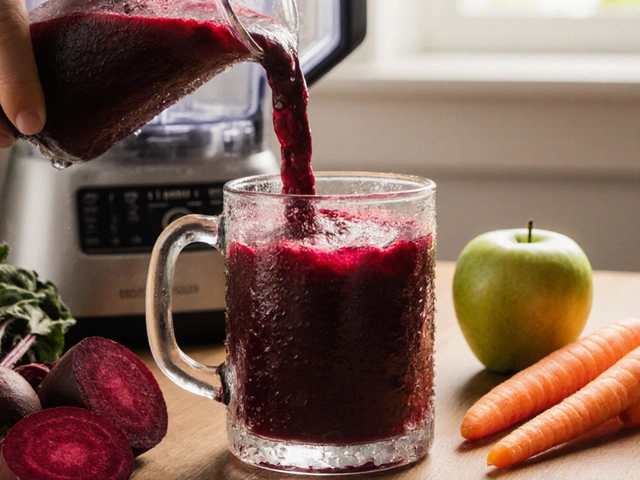The Foundation of Gut Health and Its Heroes Named Fibers
Imagine embarking on a journey through the intricate maze of our digestive system, a realm where billions of microscopic inhabitants dictate the state of our health, mood, and even thoughts. At the forefront defending our well-being, stand an often-overlooked yet crucial ally – dietary fibers. These indigestible parts of plant foods act not merely as roughages moving through our gut but as vital nutrients that nourish and maintain the delicate balance of our gut microbiome.
Dietary fibers are categorized primarily into soluble and insoluble types, each playing unique roles in digestion. Soluble fibers dissolve in water, forming a gel-like substance that helps regulate blood sugar levels and lower cholesterol. Found in oats, apples, and beans, they're heroes in promoting heart health. On the other hand, insoluble fibers, present in whole grains and vegetables, add bulk to the stool and ensure smooth passage through the gut, preventing constipation.
This balance of fibers is essential for the complex orchestra of gut bacteria. A diet rich in diverse fibers supports a healthy microbiome, reducing the risks of chronic diseases such as obesity, type 2 diabetes, and inflammatory bowel diseases. Not just that, fibers have a pivotal role in enhancing immune function and even potentially warding off colorectal cancer.
Digging Deeper: The Science Behind Fibers and Gut Health
Let's delve into the molecular dance inside our gut where fibers and bacteria interact. Upon consuming dietary fibers, they reach the colon undigested, where they become feast for specific gut bacteria. This fermentation process produces short-chain fatty acids (SCFAs) like butyrate, propionate, and acetate, which serve as energy sources for gut cells, strengthen the gut barrier, and have anti-inflammatory effects.
A landmark study published in the Journal of Nutrition highlights the inverse relationship between high fiber intake and the risk of developing various chronic diseases.
Moreover, fibers influence the gut-brain axis, a communication network linking emotional and cognitive centers of the brain with intestinal functions. Adequate fiber intake has been associated with lower stress levels and improvements in mood disorders. The intricate relationship emphasizes the importance of diet in managing not only physical but also mental health.
Unlocking the Sources: A Treasure Trove of Fibrous Foods
Transforming our diet to be fiber-rich is simpler than one might think. Fruits, vegetables, legumes, nuts, and whole grains are treasure troves of both soluble and insoluble fibers. Incorporating a variety of these foods ensures a balance of fibers, catering to the needs of our gut microbiome. For instance, starting the day with a bowl of whole-grain cereal or oatmeal can kickstart digestive health. Adding legumes to salads or choosing fruits as snacks are easy ways to boost fiber intake throughout the day.
It's intriguing to note that the recommended daily intake of dietary fibers is around 25 grams for women and 38 grams for men, according to the American Heart Association. Yet, most individuals consume less than half of this recommendation, missing out on the health benefits.
According to a report from the World Health Organization, increasing dietary fiber intake is associated with up to a 16% lower incidence of cardiovascular disease, diabetes, and colorectal cancer.
Making small, conscious decisions to include fiber-rich foods in every meal can pave the way towards optimal health. Simple swaps like choosing whole grain bread over white or snacking on nuts instead of chips can make a significant difference.
Navigating Challenges: Overcoming Common Fiber-Related Obstacles
While embarking on a fiber-rich journey, it's not uncommon to face challenges such as bloating or changes in bowel habits. These are typically temporary and can be eased by gradually increasing fiber intake, allowing the gut to adapt. Staying hydrated is crucial as fibers absorb water during digestion, promoting smoother movement through the gut.
For those with specific dietary restrictions or health conditions like irritable bowel syndrome, consulting a healthcare provider or a dietitian can help tailor a fiber intake plan that suits individual needs without exacerbating symptoms.
An insightful piece from the Gastroenterological Society of Australia suggests that a balanced approach to increasing dietary fibers, coupled with professional guidance, can mitigate digestive discomfort while reaping the health benefits.
Finding creative ways to incorporate fibers into meals, such as experimenting with fiber-rich recipes or using whole grains, can also make the journey enjoyable and sustainable.
Fiber-forward Future: Cultivating a Gut-friendly Lifestyle
Adopting a fiber-rich diet is more than a dietary change; it's a lifestyle shift towards holistic health. Alongside dietary modifications, regular physical activity, adequate hydration, and stress management play integral roles in maintaining gut health. Engaging in exercises like walking or yoga can enhance gut motility, complementing the benefits of dietary fibers.
Moreover, staying informed about the latest nutritional science and trends can inspire continued improvement in our dietary choices. Seminars, workshops, and articles are great resources for staying updated and motivated.
Ultimately, the journey to optimal gut health through dietary fiber is a personal and evolving one. It calls for mindfulness, experimentation, and patience. By listening to our bodies and making informed choices, we can harness the power of fibers to foster not only a healthy gut but a vibrant life.





